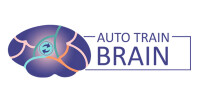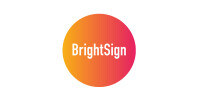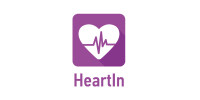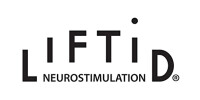Heart stumble
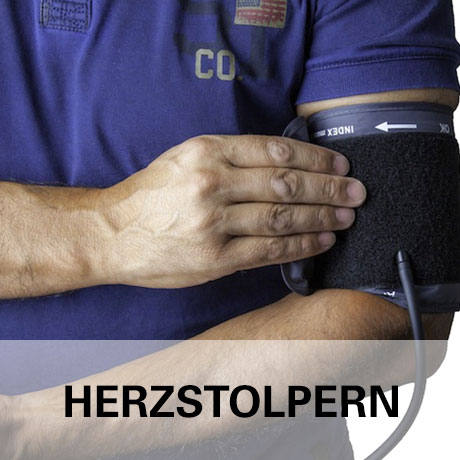
Is the heart allowed to stumble?
Is heart stuttering normal? The heart is the engine of the human body. It normally has a very regular beat, delivering its 60 to 80 beats per minute on average..
However, it sometimes happens that a heart gets out of time. This is then also referred to as "heart stuttering". The following questions are answered here in a simple and understandable way:
- What is heart stumbling actually?
- Heart stumbles. What now?
- Is it dangerous?
- What does heart stumbling feel like?
- And what can sufferers do to make their
the heart beat more evenly again?
What is heart stuttering?
Is heart stuttering normal? The heart is the engine of the human body. It normally has a very regular beat and delivers its 60 to 80 beats per minute on average.
Doctors speak of heart stuttering when a heart no longer beats in its regular rhythm. It is out of sync, so to speak, and makes a few extra beats from time to time.
These extra heartbeats are also called extrasystoles. The extra beats cause the heart to get out of its normal rhythm and "stumble" for a moment. Doctors also refer to this phenomenon as "palpitation," which means a twitching of the heart. Those affected notice symptoms of cardiac stumbling such as a briefly increased heartbeat or a particularly strong beating of the heart. However, you usually don't notice the extra beats themselves.
What can be causes for heart stumbling
It does not take much for the heart to stumble. Strong emotions are already enough for the heart to lose its rhythm for a moment. You know this if you have ever had to go to an important exam or were facing a first date.
In such situations of high tension, the heart can pump faster than usual. The change in the frequency of the heartbeat then often leads to the heart unintentionally adding one more beat and briefly falling out of its rhythm.
Once the initial tension has subsided and the heart is working more calmly again, however, it also normally finds its way back to its old rhythm.
Stimulants and medications as triggers for heart palpitations
The consumption of tobacco, alcohol, coffee or energy drinks can also have a direct effect on your heart. Such substances have a direct effect on the nervous system and are supposed to make someone feel amped up and awake, for example.The consumption of tobacco, alcohol, coffee or energy drinks can also have a direct effect on your heart. Such substances have a direct effect on the nervous system and are supposed to make someone feel amped up and awake, for example.
This wake-up effect is achieved when the heart beats faster, pumping more blood and oxygen through the body. To do this, ingredients like nicotine or caffeine give the heart a little "push," which can sometimes lead to an extrasystole.
Some medications such as antidepressants can have the same effect, which is why they are only allowed to be taken under a doctor's supervision.
Diseases and deficiencies as a cause
In addition, cardiac stuttering can be caused by other pathological phenomena. Pathological cardiac arrhythmias, hypothyroidism or even chronically low blood pressure directly affect the cardiovascular system.
They weaken the heart muscle and promote the occurrence of extrasystoles. A vitamin B12 deficiency can also trigger heart palpitations in you.
Rare - Congenital heart palpitations
In very few cases, heart palpitations are congenital. For every 10,000 patients with cardiac arrhythmias, only one is affected by ventricular extrasystoles.
The unwanted additional beats are due to defective development of the heart or the diaphragm. In patients with congenital cardiac strokes, the ventricles cannot develop completely normally.
The heart seeks to compensate for this limitation and occasionally twitches in an attempt to unfold itself. Because this is very common compared to the heart of a healthy person, patients with congenital heart stumble suffer from a permanently elevated heartbeat.
The heart rhythm can be normalized by surgical intervention. Often, however, the doctor rather prescribes medication to normalize the heartbeat. Reaching for a scalpel rarely takes place.
Heart stumble How many times a day normal?
The heart stumble itself is usually inconspicuous. Sufferers do not feel the extra beats. They only notice that as a result of the stumbling, their heartbeat increases and becomes somewhat stronger.
Depending on age and state of health, five to ten additional beats in one minute are still harmless. The heartbeat subsides after a short time and returns to its normal state. This can happen to a person as often as two or three times a day and is not a cause for concern.
Science eases many people's worries
Scientists have found that heart palpitations occur in many people after eating. However, it has also been observed in some patients that they experience heart stumbles while lying down.
Doctors believe that changes in hormonal status are responsible for this. Immediately after eating or in the evening before falling asleep, the body releases increased amounts of hormones that are thought to act on the nervous system and trigger fatigue.
This is caused, among other things, by a slowing of the heartbeat. However, when the body releases too many hormones at once, it overstimulates the nerves of your heart, causing it to make a few more beats before it returns to beating slowly and steadily.
Menopausal heart palpitations
Women are more likely to experience an irregular heartbeat during menopause. The hormonal changes in the female body don't just trigger unwanted hot flashes or send emotions on a roller coaster.
The heart also goes a little crazy when the supply of hormones changes. That's why some women feel the heart pounding even when they are at rest, without experiencing stress or anxiety.
Also, sometimes during menopause heart palpitations are caused by Roemheld syndrome.
What is Roemheld syndrome?
Roemheld syndrome is a form of heart trouble caused by too much gas in the stomach or intestines. The stomach and intestines are located in the body just below the heart.
The only partition between the organs is the diaphragm. When the stomach or intestines expand due to the accumulation of gas, the organs press on the heart muscle and squeeze it.
The heart then cannot function normally and "swallows" a few beats. This results in the heart stumbling at rest, which can continue until the organs shrink back to their normal size.
Roemheld syndrome is more common in menopausal women because the body's transition also affects the digestion of food.
However, heart trouble usually resolves once menopause is over and women have adjusted to their physical changes.
Is heart palpitations dangerous?
In a healthy person, the extra beats of the heart are harmless. They do briefly throw the heart off its usual pace, however, it quickly settles back into its normal rhythm.
Sometimes you don't even notice that your heart is beating differently. It can happen, for example, that the heart stumbles during sleep. If you turn around or tighten your legs in your sleep, they may squeeze the heart muscle briefly.
There is a small interruption in the heartbeat, which the heart compensates for with a few extra beats. Nevertheless, you continue to sleep as if nothing had happened at all. Even the noticeable irregularities in the heartbeat are not actually dangerous.
If you've been exercising or have been through a stressful situation, then it's not uncommon for the heart to work a little irregularly.
Heart stumbles during stress are promoted by the increased hormone levels. However, when the stress subsides, the hormone levels return to normal. The heart becomes calmer and falls back into a relaxed rhythm.
In these cases, you should consult a doctor
However, it becomes alarming if the irregularities, such as a flickering heartbeat, persist over a longer period of time. The longer the heart is out of rhythm, the higher the risk that the heart muscle will be affected.
In the worst case, a supposedly harmless heartbeat can result in a chronic cardiac arrhythmia.
If, in addition to the irregular heartbeat, you experience symptoms such as dizziness, palpitations, breathing difficulties, chest pain or even fainting, you should definitely see a doctor.
There is then the suspicion that you have not experienced a harmless heart stumble, but suffer from a serious illness.
This could be heart failure or an undetected valvular defect, for example. Such conditions can be life-threatening and should be treated by a doctor immediately!
What can you do against heart palpitations?
Normally, you do not have to do anything about heart palpitations. The heart stabilizes on its own and resumes a regular rhythm. However, if the small misfires continue over a longer period of time and occur more frequently, you should take action.
A first step can be to change your habits. Avoiding or reducing the use of stimulants such as tobacco and nicotine will help the heart considerably. Light exercise is also good for strengthening the heart.
The right sport strengthens your heart
It's better to do sports that only get the circulation going, but don't push it to its limits. Instead of a strenuous marathon run, a regular walk at a brisk pace is enough.
With such exertion, you strengthen your heart muscle in a gentle way, thereby reducing the likelihood of an extrasystole occurring. You can also use relaxation training and breathing exercises to help your heart beat more calmly and steadily.
Because you resolve feelings of stress, anxiety or tension with these exercises, you also reduce the release of hormones. This significantly relieves your nervous system and allows your heart to beat more calmly.
Going to the doctor
If you suffer from an irregular heartbeat over a long period of time or if you experience chest pain, you should see a doctor and get checked out.
Even if dizziness or fainting has not yet occurred, the risk of serious heart disease may be very high. A doctor can determine if your heart is working normally. He can also investigate whether your extrasystoles may be caused by other conditions.
If he determines that other causes are underlying, he will prescribe appropriate therapy to make the arrhythmias go away.
What you can do for your heart immediately
The ECG ring warns you reliably around the clock, directly when you suspect conditions such as atrial fibrillation or another heart complaint.
This is because the symptoms often do not appear at the time of a visit to the doctor. But recognizing the symptoms is very important when it comes to initiating the appropriate therapy. The ECG ring detects atrial fibrillation 24/7, with 99.6% accuracy.
With the results, you help your doctor develop the appropriate therapy for your heart. The ring is just right for you if your heart health is your priority.
For more information about the ECG ring, click here: To the ring
Back to the topic portal: Cardiac health
Further information is available on the following pages:
® www.mindtecstore.com 2022
Author: Hans-Georg Bieschke, last updated 18.10.2023







